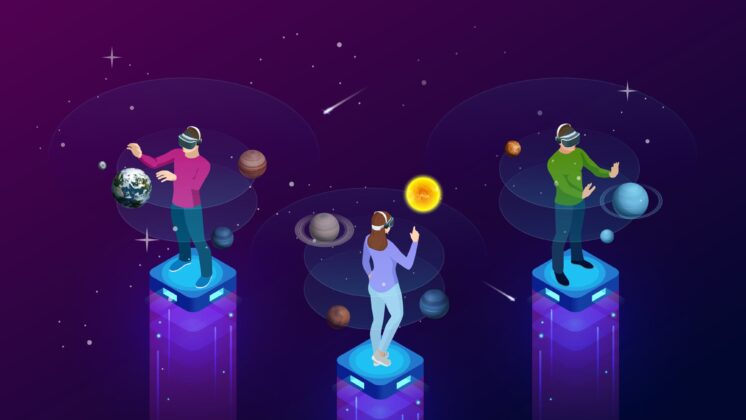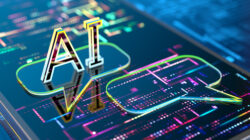Leading High Performing Remote Teams
How can leaders ensure that performance remains high in remote or hybrid-work environments?
Content Marketing
In this course, you’ll learn how compelling blogs, videos, podcasts, and other media can reach customers and drive sales. You’ll also learn steps for creating an effective content marketing plan, and some important ways to measure its impact and success.
Content marketing is a essential digital marketing strategy for companies looking to provide relevant and useful information to support your community and attract new customers.
Get started on your content marketing journey today.
Sustainable Innovation in Times of Disruption: Choices for a Better Society
There are opportunities for progress all around us. The key is to innovate on these opportunities sustainably.
To help identify most effective path forward, you'll need to gain a global perspective to these challenges in an open discussion. How can Japan and the world take action to create a more sustainable, innovative world? Where do you fit in?
It's time to find out.
Social Media & Digital Communications: Impact on Global Public Opinion
Social and digital media have dominated the communications industry for decades. But it's no secret that social media has the power to sway public opinion, and the way in which many companies use these platforms could be seen as manipulative.
What do companies need to be aware of when utilizing social and digital media? How can these mediums be used to better communicate strategically with the world?
Discover what top media and communications experts have to say.
CAGE Distance Framework
Want to expand overseas? The CAGE distance framework can help ensure you're constructing a solid global strategy in four areas: cultural, administrative, economic, and geographic. Learn how to leverage useful differences between countries, identify potential obstacles, and achieve global business success.
Servant Leadership
There's more to leadership than driving a team to profit. In fact, there's a word for looking beyond self-interest to prioritize individual growth: servant leadership. Try this course for a quick breakdown of what that is, how it works, and how it can lead to organizational success.
Strategy: Creating Value Inside Your Company
Have you ever wondered why certain companies are more successful than others? The answer is strategy: internal processes that control costs, allocate resources, and create value. This course from GLOBIS Unlimited can give you the tools you need for that strategic edge.
Strategy: Understanding the External Environment
To plan strategy on any level, you need to understand your company's external environment. In fact, your level of understanding can impact hiring, budgeting, marketing, or nearly any other part of the business world. Want to learn how to do all that? This course from GLOBIS Unlimited is the perfect first step!
Using Japanese Values to Thrive in Global Business
Japanese companies have unique cultural, communication, and operational challenges. But they also have values that have led to remarkable longevity. Check out this seminar to hear how these values help earn trust from overseas head offices and develop employees.
Marketing: Reaching Your Target
Every company works hard to get its products into the hands of customers. Are you doing everything you can to compete? In this course, you’ll find a winning formula to turn a product idea into real sales. Follow along through the fundamentals of the marketing mix and see how companies successfully bring products to market.
Basic Accounting: Financial Analysis
Want to compare your performance vs. a competitor? Or evaluate a potential vendor? Then you'll need to conduct a financial analysis. This course will teach you how to use three financial statements and evaluate financial performance in terms of profitability, efficiency, soundness, growth, and overall strength.
Career Anchors
What drives you to be good at your job?
Career anchors are based on your values, desires, motivations, and abilities. They are the immovable parts of your professional self-image that guide you throughout your career journey.
Try this short GLOBIS Unlimited course to identify which of the eight career anchors is yours!
Leadership with Passion through Kokorozashi
The key ingredient to success? Passion.
Finding your kokorozashi will unify your passions and skills to create positive change in society. This GLOBIS Unlimited course will help you develop the values and lifelong goals you need to become a strong, passion-driven leader.
“With the current emerging technologies, man will soon be able to get to Mars.”
So said the legendary NASA astronaut Captain Scott Kelly at the CSCMP 2016 Conference in Orlando. Kelly holds the record for the longest stay in space (more than 400 days) and has participated in numerous space missions. Most notably, in 2015, he celebrated a full year aboard the International Space Station. Kelly argued that the technology that enabled man to get to the Moon had less processing capacity than his smartphone, and that today’s technological advances are more than capable of getting a crewed mission to Mars (56 million kilometers away) with guarantees of successfully getting them back.
This is a notion shared by the President Barack Obama, who in declarations made on October 11, 2016, claimed that the goal of a mission to Mars could be reached within 15 years. This would be done in collaboration with private space enterprises Boeing and SpaceX, famously owned by Elon Musk.
On October 25, I was invited to give a talk at the Boeing Center for Supply Chain Innovation titled “IT & Global Supply Chain Management Strategy: A Japanese Manufacturing Perspective.” I presented a recent study on the implementation of emerging technologies related to Industry 4.0 and the vision of Japanese industrial companies, conducted in collaboration with my colleagues Professor Michiya Morita and Professor Yukari Shirota of Gakushuin University.
The speaker who preceded me was Kory Mathews, vice president of autonomous systems at Boeing Military Aircraft, who reiterated the impact many of these systems will have on global supply chains and industries, as well as our lives. He added that quite a few of these technologies are not new, although their miniaturization and low cost are, and that their reliability has been amply proven thanks to IoT and AI.
Next Article
Three Career Skills You Need to Thrive in the 21st Century Workplace
9 Technology Myths: Reprogramming Business Leaders for the Future
Welcome to the Fourth Industrial Revolution
There is a general consensus that we are witnessing the beginning of the Fourth Industrial Revolution, an age in which technologies become capable of supporting the visions of enterprise leaders, which in turn drives the expansion of technology. These visionary leaders see the tremendous potential of technological transformation. Professor Klaus Schwab, founder and executive chairman of the World Economic Forum, explored the possibilities in his book, The Fourth Industrial Revolution.
“[The Fourth Industrial Revolution] is characterized by a range of new technologies that are fusing the physical, biological, and digital worlds, impacting all disciplines, economies, and industries, and even challenging ideas about what it means to be human,” he says.
But what are these technologies, and what can they do for us, our businesses, and society? How do we connect the dots to reveal the map of the future?
It’s no easy task. We’re talking about technologies and disciplines that are considered separate domains of knowledge and skills.
Leonardo Da Vinci would probably have loved this era. Similar to his own age in which the Middle Ages transitioned into the modern age, we are now living to see three great, previously separate worlds collide: the physical, the digital, and the biological. The boundaries of industry as we know them are starting to blur.
Fortunately, we do not have to have Da Vinci’s mental or creative capacity to understand the world around us. The foremost emerging IoT technologies rely on each other to evolve.
IoT is equivalent to the railway lines during the First Industrial Revolution, which allowed trains to connect cities and people. In the business world, IoT involves connecting industries, businesses, commerce, and clients without human intervention. An IoT strategic approach aims at the experience of the client, at designing new client-centered businesses, products, services, and operation models.
The legendary Harvard Business School marketing professor Theodore Levitt said, “People don’t want to buy a quarter-inch drill. They want a quarter-inch hole!” Technology in the realms of AI, big data, and intelligent sensors hold particular strategic value for organizations looking to rise in the Fourth Industrial Revolution.
Artificial Intelligence (AI)
If IoT is equivalent to the railways of the First Industrial Revolution, AI is the locomotive steam engines and factories driving society and industry to advance. AI is the engine of machine-based learning, capable of generating new knowledge and instant decisions. In most cases, these decisions are more reliable than those made by humans.
It has been demonstrated that self-driving vehicles are less prone to accidents than human drivers. Why? Because there are three things AI can do much better than humans: control, optimize, and predict.
In China, it is now possible to receive a preliminary medical diagnosis carried out entirely through AI, with greater-than-average reliability. This AI system has been developed by Baidu, which also develops AI for self-driving cars. A Chinese company with an R&D center in Silicon Valley, Baidu has been classified as the second most intelligent company in the world by the MIT Technology Review. First place is held by Amazon, while third place goes to Illumina, the world’s largest DNA sequencing company, which is developing a test to detect a range of cancers at a cost of less than $1,000 each.
Next Article
Denying Big Data Hubris: 3 Reasons Machines Still Need Us
Big Data
The first locomotives needed coal as an energy source. According to Forbes, big data could be the new oil of economic power. AI needs trillions of pieces of old and new data to achieve maximum efficiency. The resulting data banks would be akin to oil wells: valuable strategic reserves.
But data alone is useless. In the same way that oil needs to be refined into petrol, big data needs to be refined into information.
The massive use of personal data could (and does), of course, lead to ethical conflicts, just as overuse of oil leads to pollution. Amazon, Facebook, Google, IBM, and Microsoft have come together to form a collaborative committee to promote the development of best practices and the ethical use of AI. Although a spokesperson for the committee has confirmed that they do not intend to lobby, we are beginning to see which entities are positioning themselves as the “big oil” companies of the future.
On the other hand, the Chinese government has announced the 2020 implementation of of a system which will help foster a society of honesty and civility. And it’s all based on the massive capture of Chinese citizens’ big data. A number of European governments are following the same route to prevent tax evasion through the merging of databases. Governments are also taking note of the risks.
In the past, our sense of value has been based on financial capital, human capital, reputational capital (brand value), and intellectual property capital. Perhaps we will soon begin to consider information capital, as well.
Intelligent Sensors
Intelligent sensors enable objects and machines to perceive the physical world and to combine it with the digital world for machine-based decision-making. Most IoT-related applications, industrial or otherwise, need intelligent sensors for real-time interactive functioning—what is known as the user interface.
There are many types of sensors. A car, even though it may not be a self-driver, has dozens of sensors that transmit information in real time to manage smooth operation and safety. By connecting this control center to an IoT platform, we would be able to generate big data, which could be easily handled by AI.
Self-driving vehicles have all their sensors, intelligent or not, connected to an IoT platform that uses inertia sensors and three additional sensors (cameras, radar, and GPS) for the autopilot function. As self-driving vehicles become more popular, we will see today’s increasingly intelligent vehicles mutate towards IoT to provide us with greater performance. We’ll have control from our smartphones, remote voice control, and optimum maintenance services.
The iPhone 7 had fourteen dedicated sensors to enhance its user interface. These include a proximity sensor, an ambient light sensor, 12MP and 7MP cameras, a microphone, an active noise cancellation microphone, an accelerometer, a barometer, a three-axis gyroscope, an A-GPS, GLONASS (Russian satellite navigation system), an NFC antenna for Apple Pay, a touch ID fingerprint scanner, and a pressure sensitive display.
With the exponential development of biosensors and nanotechnology, we will soon find sensors everywhere, including the human body, where they might administer tests, drugs, and even microsurgery.
With so much power literally in the palm of our hands, it’s not so hard to believe that a trip to Mars is just around the corner.






